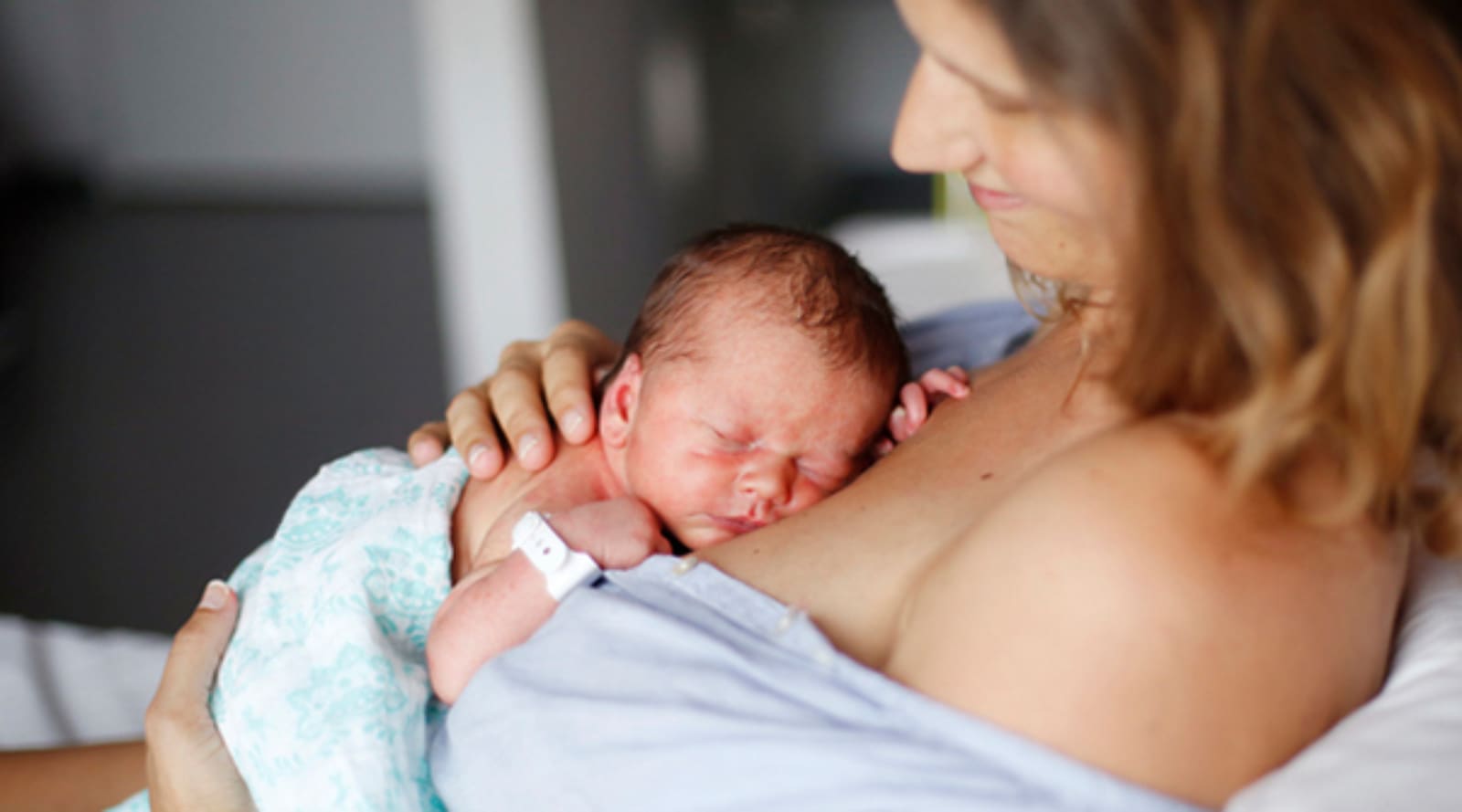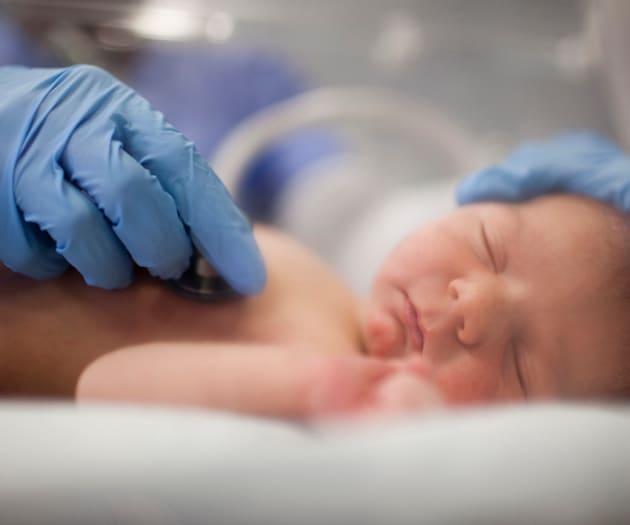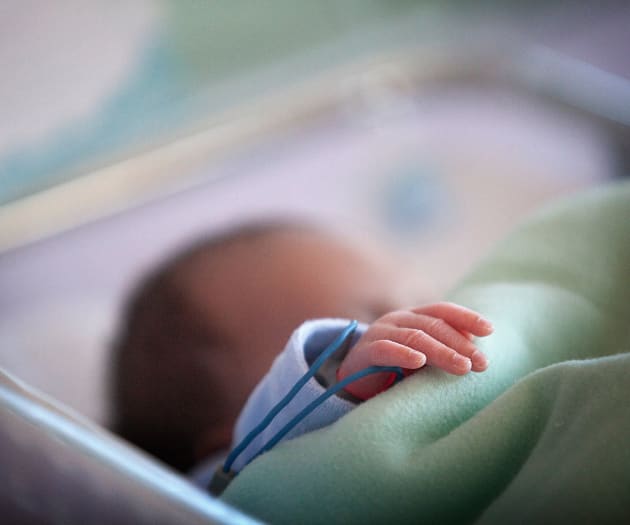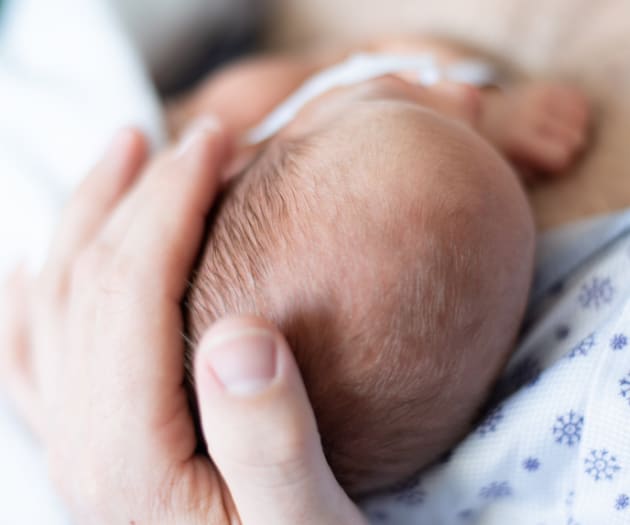Introduction
Giving birth to a premature baby can be distressing. You and your baby will be in the safest place for the treatment you both need, however you may be left feeling overwhelmed and in need of some additional support. We have compiled all there is to know about premature birth to help you navigate this difficult time.
What is preterm labour
Premature labour refers to labour that happens before the 37th week of pregnancy. Figures show that approximately 8 out of 100 babies will be born prematurely.1
What causes premature birth?
The majority of premature births happen on their own and doctors are unable to find the reason for it.2 It is possible to have no complications throughout pregnancy and begin early labour. Some pregnant women are at a higher risk of experiencing premature birth. These risks relate to your pregnancy history, how your current pregnancy is progressing, your age and medical history.
Here are some of the known causes of premature birth:3-8
- Untreated infections (e.g., urinary tract infections).
- Chronic conditions including type 1 and type 2 diabetes.
- The onset of gestational diabetes or pre-eclampsia during pregnancy
- If you are carrying more than one baby
- Bleeding after 24 weeks or problems with your cervix
- Waters breaking early (known as preterm prelabour rupture of membranes (PPROM))
- Age (below the age of 18 or over the age of 40)
- Lifestyle factors: weight, alcohol intake, smoking or emotional/stressful triggers
It is important to speak with your midwife or obstetrician early during your pregnancy if you may be at risk of premature labour. They will be able to explain the care you will be offered.9
What happens with a planned premature labour?
Healthcare professionals (HCPs) sometimes decide to plan a premature labour because it's safer for the baby to be born sooner rather than later.1 This could be because of a health condition in the mother (e.g., pre-eclampsia) or in the baby (e.g., fetal growth restriction). If you are advised to give birth early, you may be offered an induction or a caesarean section.10
Your midwife and obstetrician will discuss with you the benefits and risks of continuing with the pregnancy versus opting for a planned premature labour. Having a planned premature labour does not mean you won’t have your wishes listened to. It is still possible to make a birth plan and discuss all of your preferences with your midwife and obstetrician.1
What can I do to prevent premature labour?
It’s not always easy for HCPs to find the reasons for premature birth, but there are ways that you can help to reduce your risks of premature birth. These include:
Maintaining a healthy weight prior to pregnancy
Overweight and underweight women are more likely to develop complications that could contribute to premature birth.11 Try to follow a healthy and balanced diet during pregnancy as much as you can (we know that nausea can make this really difficult in those early days).11
Staying physically active throughout pregnancy
In addition to being a natural mood booster, exercise can reduce the risk of developing conditions such as diabetes and pre-eclampsia which can lead to premature birth.1,12 It is advised to aim for 150 minutes of moderate activity every week, unless advised otherwise by your midwife.12 Read our guide to exercising in pregnancy.
Many types of infection associated with premature birth. Infections can compromise your immune system, making you more susceptible to further health problems for you or your baby. To reduce the risk of infections, it is advised to follow food safety advice and avoid contact with cat faeces or litter (as this can carry bacteria that can cause toxoplasmosis, which can be harmful to your baby).13,14
Is there any treatment to prevent premature labour?
It’s possible that your midwife and obstetrician will offer you treatment to prevent premature birth if1:
- you've previously given birth at less than 34 weeks pregnant
- you've previously had a miscarriage from 16 weeks pregnant
- your waters have broken before 37 weeks (during your current or previous pregnancy)
- your cervix has been injured in the past (e.g. through surgery)
- you have a short cervix
There are two treatments which are routinely offered. These include1:
- a hormone medicine that you put into your vagina
- an operation to place a stitch in your cervix to help support it
It is important that you discuss these treatments with your midwife or obstetrician to decide if these treatments are right for you.
What are the early labour signs?
Labour is an important part of meeting your baby. If you have been told you are at risk or if you have been advised to have a planned premature labour, it is important that you and your birth partner know the signs of premature labour.9 These can include:1
- contractions (sometimes referred to as ‘tightenings’)
- a ‘show’ - this is when the plug of mucus from your cervix (entrance to your womb, or uterus) comes away
- backache
- an urge to open your bowels, which is caused by your baby's head pressing on your bowel
- your waters breaking
What will happen if I go into premature labour?
If you notice any signs of premature labour, it is important to call your midwife for advice and further assessment.1
Sometimes, when a baby is born prematurely, they may need special care in a neonatal unit. Watching HCPs care for your baby instead of you can be a difficult experience – try to seek support from close family and friends and don’t feel scared to ask your healthcare team any questions you may have. There are many ways that you can play a role in your premature baby’s care. Ask your healthcare team about ’Kangaroo nursing’ which involves continuous skin to skin contact between parents and baby. This act can provide many physical and emotional benefits to both you and your baby.15
Next steps
A premature birth can have significant effects on the parents and family. Every parent wishes for a healthy and uncomplicated labour - it can be very upsetting when this isn’t the case. Charities (e.g. Bliss) are on hand to offer a wide range of free services for the families of premature babies throughout every stage of your journey.








